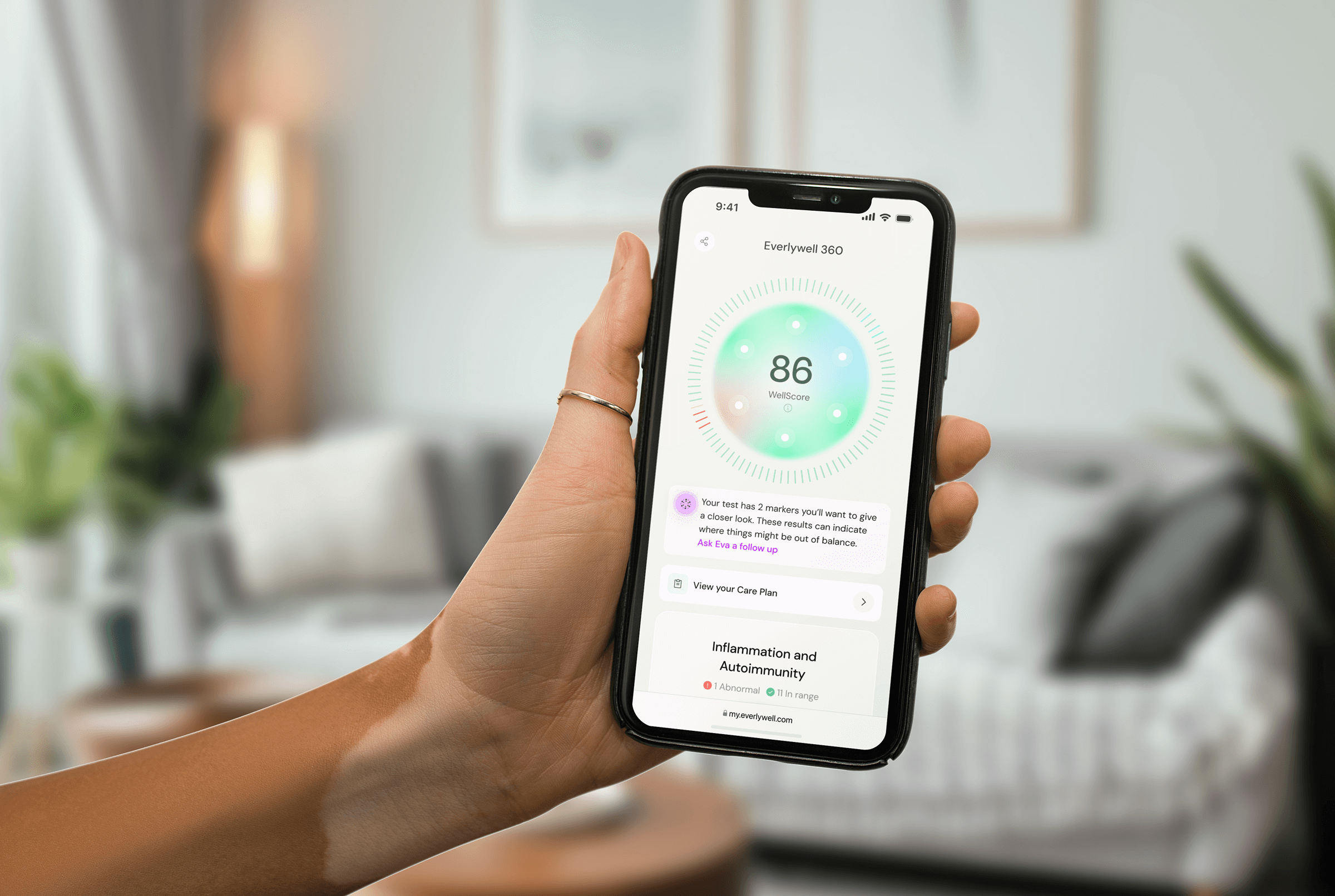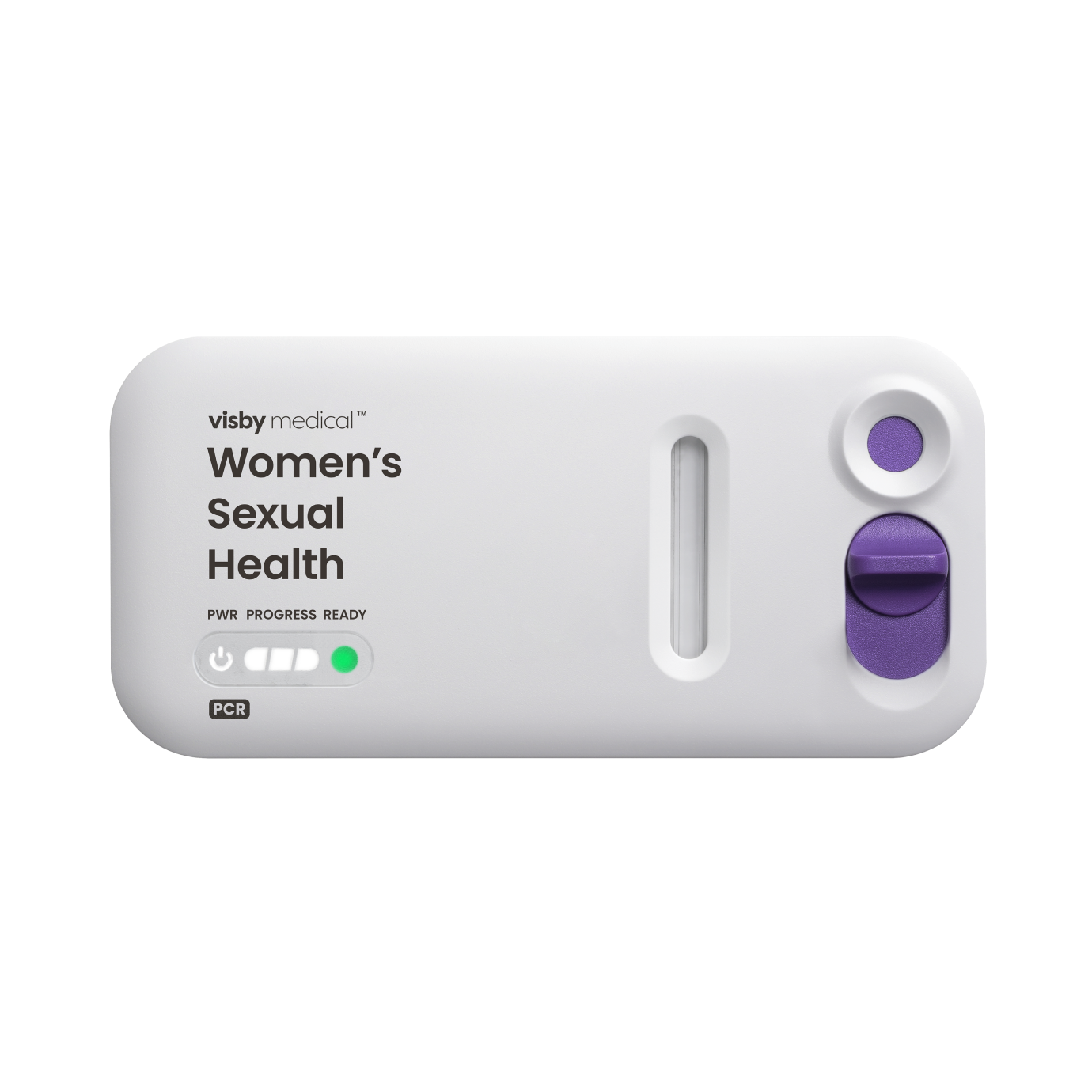Written by: Jordan Stachel, MS, RDN, CPT
How to Lower Testosterone in Women
Testosterone is a sex hormone that is made by all people, both men and women. Sometimes, testosterone levels can get too high in women and cause undesirable symptoms to occur. There are ways to bring levels back down to an optimal range. Read this article for everything you need to know.
What Is Testosterone?
Testosterone is a sex hormone that affects several processes in the body.[1] It helps with the development of major sex organs and supports male reproductive health.[1]
Testosterone is also important for women -- it’s made in the ovaries and adrenal glands. Women need the right balance of testosterone and estrogen for optimal ovarian function.[1] This balance supports the menstrual cycle, fertility, and overall hormonal health, especially during menopause and beyond.
Why Do Women Have High Testosterone?
Women can have elevated testosterone levels for many reasons. Some of the most common include:[2]
- Polycystic ovary syndrome (PCOS): PCOS is one of the most common causes of elevated testosterone levels in women. It affects hormone balance and can impact insulin and metabolism.
- Age: Younger, premenopausal women are more likely to have elevated testosterone compared to postmenopausal women.
- Ethnicity: People of certain ethnicities may be more likely to have higher testosterone levels than others.
How to Lower Testosterone Levels
Women with elevated testosterone can take several steps to help reduce these levels:[2]
- Lifestyle adjustments: For women with PCOS and obesity, weight loss may help optimize testosterone levels by improving insulin sensitivity and metabolic function.
- Medications: With medical guidance, oral contraceptives or androgen-inhibiting drugs may help balance hormone levels. Certain medications that affect insulin can also support testosterone reduction.
How Food Can Help to Lower Testosterone Levels
While more research is needed, certain nutrients may influence hormone balance. These foods may help support healthy testosterone levels:[3-6]
<ul>
<li><strong>Mint:</strong> Eating more spearmint or peppermint may help reduce testosterone. Try adding mint to teas, smoothies, or sauces.</li>
<li><strong>Licorice:</strong> Licorice may help block hormone pathways that produce testosterone. Try a small amount in snack mixes or teas.</li>
<li><strong>Flaxseed:</strong> Flaxseeds are rich in lignans, which may help lower testosterone. Add ground flaxseed to oatmeal, muffins, or pancakes.</li>
<li><strong>Nuts:</strong> Walnuts and almonds can help bind to sex hormone-binding globulin (SHBG), potentially lowering free testosterone. Try almond butter on toast or sprinkle walnuts on yogurt.</li>
</ul>
<p>While diet alone may not drastically change testosterone levels, these foods can be part of a balanced approach. Consult your healthcare provider for personalized advice.</p>
Can Supplements Help to Reduce Testosterone Levels?
Some supplements may help lower testosterone in women—especially those with PCOS. Always discuss new supplements with your healthcare provider. Helpful options may include:[7-9]
- Zinc: May reduce testosterone by influencing insulin synthesis.
- Vitamin D: Shown to support hormonal balance and lower testosterone in some women with PCOS.
- Omega-3 fatty acids: Can help reduce testosterone and regulate the menstrual cycle by optimizing luteinizing hormone levels.
Supplements may not work for everyone, which is why individualized medical guidance is essential.
Signs of High Testosterone in Women
Common signs that may suggest elevated testosterone include:[10]
- Enlargement of the genitalia
- Acne or oily skin
- Excess body or facial hair
Symptoms can vary depending on the cause. If you notice these signs, it’s important to get tested and discuss results with your healthcare provider.
Take Control of Your Hormonal Health with Everlywell
Balancing testosterone levels can feel overwhelming, but you don’t have to do it alone. Everlywell offers at-home hormone tests you can take from the comfort of your own home. Your results are reviewed by a healthcare provider, with next-step guidance to help you feel your best.
Explore at-home hormone tests to learn more.
References
- Harvard Health. Testosterone: What it is and how it affects your health. Published June 22, 2023. Accessed July 23, 2025. Link
- Sharma A, Welt CK. Practical approach to hyperandrogenism in women. Med Clin North Am. 2021;105(6):1099-1116. doi:10.1016/j.mcna.2021.06.008.
- Ataabadi MS, et al. Role of spearmint in addressing hormonal disturbances in PCOS. Adv Pharm Bull. 2017;7(4):651-654.
- Armanini D, et al. Licorice reduces serum testosterone in healthy women. Steroids. 2004;69(11-12):763-766.
- Nowak DA, et al. Flaxseed supplementation and hormonal levels in PCOS. 2007.
- Kalgaonkar S, et al. Walnuts vs almonds and metabolic outcomes in PCOS. Eur J Clin Nutr. 2010;65(3):386-393.
- Torshizi FF, et al. Effects of zinc on reproductive hormones in PCOS. IJMB. 2020;23(1):36-45.
- Kazeminia M, et al. Vitamin D and hormonal profile in PCOS: meta-analysis. MEFS J. 2024;29(1).
- Nadjarzadeh A, et al. Omega-3 supplementation and androgen profile in PCOS. 2013.
- Cleveland Clinic. Hyperandrogenism. Published June 12, 2025.











